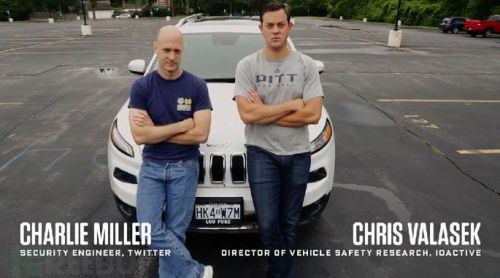According to recent reports from international media, Karamba has introduced a groundbreaking anti-hacking software designed specifically for connected vehicles. This innovative solution aims to enhance cybersecurity and protect drivers from potential threats that come with increased vehicle connectivity.
As car manufacturers continue to integrate advanced technologies into their vehicles, concerns about cybersecurity have grown significantly. The fear is that hackers, cybercriminals, or even malicious children could exploit vulnerabilities in the system. From unauthorized access to personal data to dangerous disruptions while driving, the risks are real and growing.
The issue of cybersecurity in connected cars has become a major concern for both consumers and industry leaders. A notable incident occurred in 2015 when two white-hat hackers successfully took control of a Jeep Cherokee, leading to a massive recall of over 1.4 million vehicles by FCA to address software vulnerabilities in the Uconnect infotainment system. This event highlighted the urgent need for stronger security measures in automotive technology.
Unlike traditional IT systems where hacking often involves stealing data from devices like tablets or smartphones, hacking a connected vehicle can lead to far more severe consequences. If a hacker gains control of a moving vehicle, it could result in life-threatening situations. Traditional security tools may not be fast enough to respond to such threats, making the development of specialized automotive cybersecurity solutions essential.

In response to these growing threats, companies in the automotive industry are taking proactive steps. David Barzilai, co-founder and chairman of Karamba, emphasized the importance of implementing multiple layers of security to prevent vehicle hacking. He noted that simply securing data is not enough; robust protective measures must be in place to stop intrusions before they occur.
Barzilai explained that relying on post-intrusion detection methods, such as malware scanning, is not effective because by the time an attack is detected, it may already be too late. Instead, he advocated for a preventive approach—blocking any suspicious activity at the point of attempted intrusion to ensure the safety of the vehicle’s systems.
Despite the current small size of the automotive cybersecurity market, it is expected to grow rapidly as more vehicles become connected. Companies like Harman International, which developed the Uconnect system used in Jeep vehicles, have started acquiring cybersecurity firms to strengthen their defenses. In 2016, Harman acquired TowerSec, an Israeli network security company, to improve its capabilities in this area.
Another player in the field, Argus Cyber Security, has demonstrated how a simple USB device can be used to hack into a vehicle's electronic system. Meanwhile, both Tesla and FCA offer "bug bounty" programs, rewarding hackers who identify and report security flaws in their systems.

One of the main vulnerabilities in connected vehicles lies in their electronic control units (ECUs), which are essentially small computers that manage various functions within the car. While most ECUs communicate internally, some, like the infotainment system and remote keyless entry unit, use wireless connections, creating potential entry points for hackers.
Karamba's approach focuses on preventing intrusions at the system level. Their anti-hacking software is embedded directly into the ECU during manufacturing, making it a built-in feature that cannot be easily altered. The software blocks any unauthorized code from accessing the system, ensuring that only factory-approved software can operate within the vehicle.
However, experts caution that no single solution can fully protect a vehicle from all cyber threats. Glen De Vos, CTO at Delphi Automotive, pointed out that as vehicles become more connected—especially with features like autonomous driving—data will be transmitted through wireless networks and the cloud. Karamba's software is just one part of a larger security strategy, not a complete solution.
Karamba, a relatively new player in the automotive cybersecurity space, has raised significant funding and is actively seeking partnerships with car manufacturers and suppliers. The company's team includes experienced professionals from Israel's high-tech sector, including former members of the 8200 intelligence unit, known for its expertise in cyber warfare.
With the increasing complexity of connected vehicles, the need for comprehensive cybersecurity solutions is more important than ever. As the industry continues to evolve, collaboration between tech companies, automakers, and security experts will play a crucial role in keeping our roads safe from digital threats.
Electrical Butt Connectors,Wire Terminal Connectors,Electrical Terminal Connectors,Spring Terminal Connector
Wonke Electric CO.,Ltd. , https://www.wkdq-electric.com